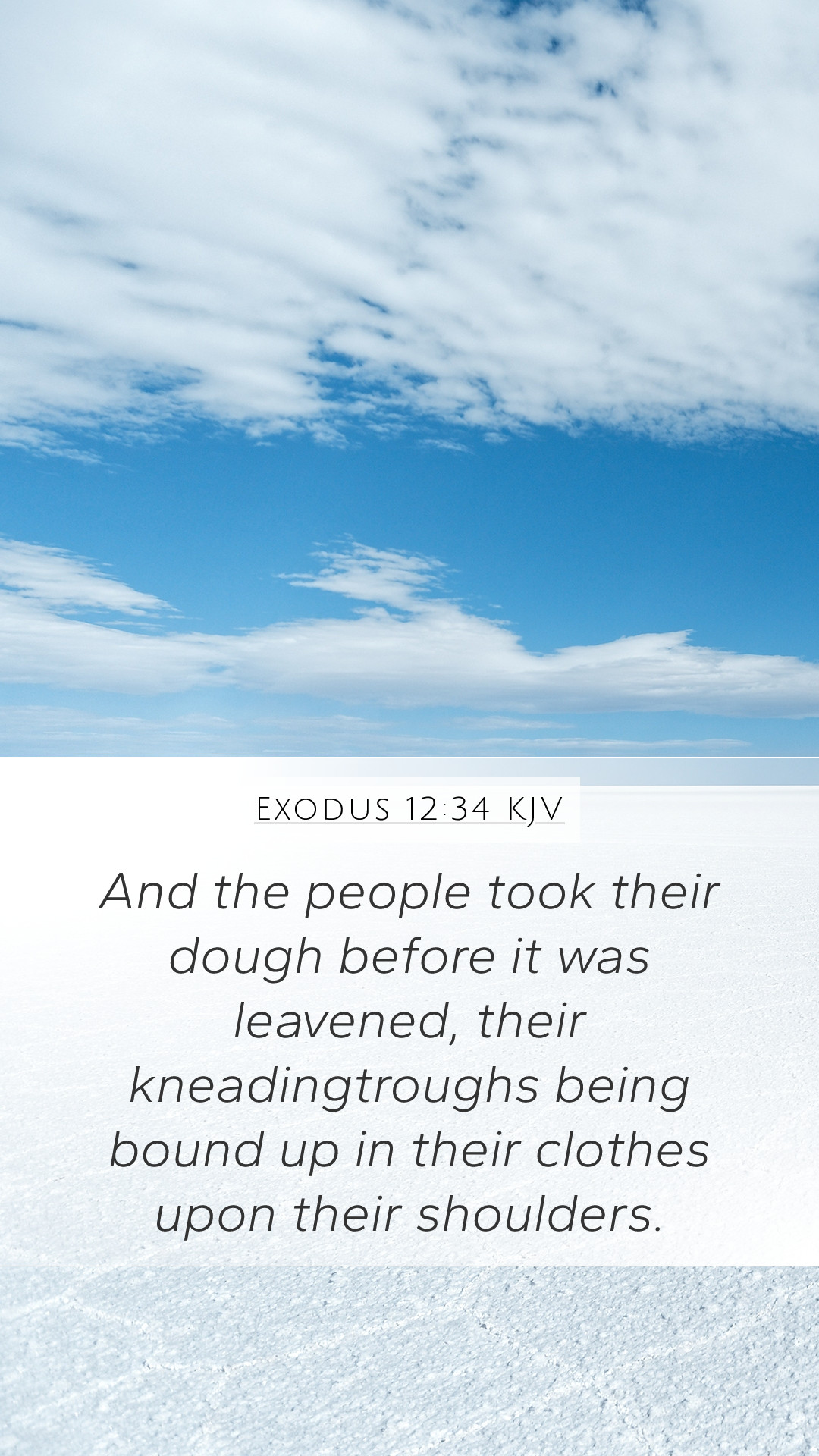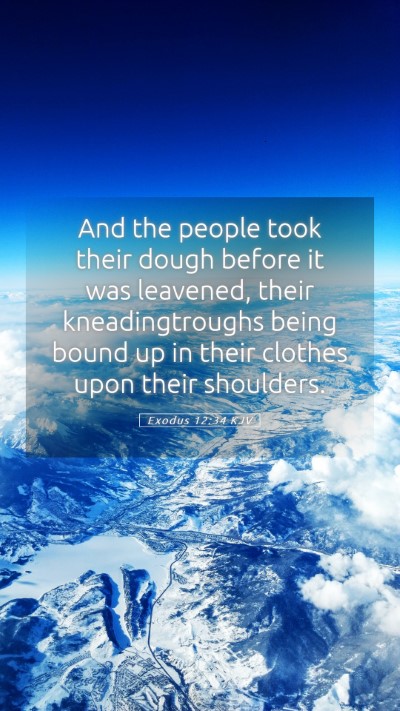Understanding Exodus 12:34
Exodus 12:34 states: "And the people took their dough before it was leavened, their kneading troughs being bound up in their clothes upon their shoulders." This verse is specific to the context of the Exodus narrative, where the Israelites are commanded to leave Egypt in haste.
Summary of Meaning
This verse illustrates the urgency with which the Israelites had to depart from Egypt following the final plague, which led to their freedom from slavery. The act of taking un-leavened dough signifies both a physical and a spiritual break from their past in Egypt.
Exegesis from Public Domain Commentaries
-
Matthew Henry:
Henry emphasizes the obedience of the Israelites in following God’s directive to leave quickly. The reference to the dough not being leavened symbolizes their readiness to abandon their former lives. Leaven often represents sin in Scriptures, making the absence of leaven significant as it represents purity and readiness for new beginnings.
-
Albert Barnes:
Barnes notes the practical aspect of their departure, indicating that the Israelites had to carry their provisions in haste. The un-leavened dough represents not only their physical sustenance but also their spiritual state, having been cleansed from the corrupt practices of Egypt. He reflects on the need for believers today to be ready to depart from sin suddenly.
-
Adam Clarke:
Clarke focuses on the historical context of this departure. He explains how the Israelites were given specific instructions for their exit, which highlights God's command and providence in leading them out of bondage. Additionally, Clarke points out the symbolism in the act of binding their kneading troughs, emphasizing their commitment to God's plan and the importance of being equipped for their journey to the Promised Land.
Key Themes and Applications
This excerpt from Exodus can lead to several important themes in Bible verse studies:
- Urgency of Obedience: The immediate compliance of the Israelites serves as a model for believers responding to God's call without hesitation.
- Symbolism of Unleavened Bread: It raises discussions about spiritual purity, as leaven symbolizes sin. Bible study groups can delve into how this theme connects with the New Testament remembrance of the Last Supper.
- Preparation for Change: The mention of carrying provisions signals the need to be prepared for new spiritual journeys, a vital lesson for individuals seeking deeper Bible study insights.
Cross References
Several other verses relate closely to Exodus 12:34, further enhancing its understanding within Scripture:
- Exodus 12:15 - The command regarding unleavened bread.
- Exodus 13:6-7 - Instructions about unleavened bread during the Feast of Unleavened Bread.
- 1 Corinthians 5:7-8 - Discussions on leaven and purity in the Church.
Conclusion
Exodus 12:34 encapsulates a moment of significant transition for the Israelites, marking their exit from oppression towards liberation. The understanding of this verse offers deep insights into obedience, readiness for spiritual journeys, and the symbolism of sin in biblical texts.
As you engage in Bible study lessons, consider how the interpretations of this passage may apply to your life today, encouraging a transformation aligned with God's will.


